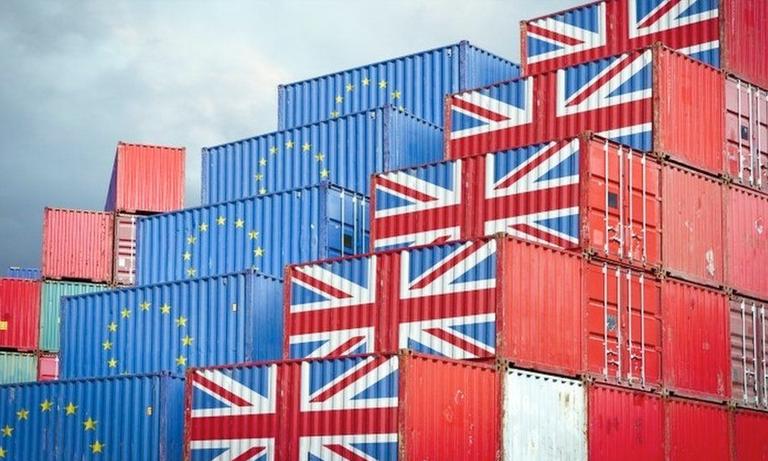 Make sure your EU-qualified staff can continue to provide professional services to clients in the UK by ensuring their professional qualification(s) are recognised
Make sure your EU-qualified staff can continue to provide professional services to clients in the UK by ensuring their professional qualification(s) are recognised Because the UK left the EU, trade relations are now governed by the Trade and Cooperation Agreement (TCA).
Where the UK has trading agreements with the rest of the world, these will continue. The UK has signed a number of trade agreements and is negotiating further deals. You can view details of the UK’s trade agreements here.
Northern Ireland businesses will have unrestricted access to the rest of the UK market, but new rules are in place for moving goods into, out of, or through Northern Ireland.
This artice gives a summary of actions your business may need to take. For a personalised list of actions for your business use the Brexit Checker Tool. Ongoing information is available by signing up to the Post Transition Business Bulletin.
Importing goods from the EU
Decisions to make before you import
- Decide how you’re going to complete customs declarations.
- You must make customs declarations for goods coming from EU to UK. Your options are:
– Make declarations yourself. More guidance is available here.
– Get a specialist to make declarations for you. More guidance is available here. - Decide how you will account for import VAT and pay customs duty. More guidance is available here.
Actions to take
- Ensure you have a GB Economic Operator Registration and Identification (EORI) number. Register for free here.
- Obtain the necessary licences for the imported goods, if necessary. More guidance can be found here.
- Ensure the goods are correctly labelled/ marked. You will find more guidance here.
- Ensure EU suppliers can establish the origins of goods (Rules of Origin) and make an exporter’s declaration so your goods can enter the UK tariff-free. More guidance can be found on this here.
Actions at the port
- Make the necessary declarations. If you are handling customs declarations yourself, you will need to arrange inspections for your animal/ plant-based products. More guidance available here.
Administration actions
- Claim a VAT refund. More guidance on this can be found here.
- Claim a refund if you think you paid the wrong amount of duty or have rejected the imported goods. You can find more guidance about this here.
You can find a step-by-step summary at www.gov.uk/import-goods-into-uk. There is also a tool available for checking tariffs, taxes and rules of trade here.
Exporting goods to the EU
Decisions to make before you export
- Decide how you’re going to complete customs declarations. You must make customs declarations for goods going from UK to EU. Your options are:
– Making declarations yourself. More guidance is available here
– Specialists can make declarations for you. More guidance is available here - Decide how you will account for VAT. Find out how and when you can apply for zero-rated VAT to exported goods, guidance can be found here
- Ensure shipping responsibilities are written down and clearly understood, including commercial terms. More guidance can be found here
Actions you need to take
- Ensure you have a GB Economic Operator Registration and Identification (EORI) number. Register for free here
- Ensure the goods are correctly labelled/ marked. More guidance can be found here
- Prepare your customer. Ensure your trading partner has taken steps to receive your goods, outlined here. They may need a licence or certificate to import some types of goods.
Actions to take for each consignment
- Prepare invoice and other documentation for your goods
The completed invoice, licences or certificates must travel with the goods. More guidance can be found here.
- Establish rules of origin for your goods
- Classify your good by its commodity code. More guidance can be found here
- Check whether your goods meet Rules of Origin requirements by using the Export Checker Tool here/ Chapter 2 and Annexes ORIG-1 through ORIG-4 of the TCA here There is further guidance here.
- Ensure you demonstrate origin to customs authorities.
You can find the Step-by-step summary at: https://www.gov.uk/export-goods
For free exporting advice and guidance, you can contact the Government’s Business Support Helpline on 0800 998 1098 (England), 0300 060 3000 (Wales), 0300 303 0660 (Scotland) or 0800 181 4422 (Northern Ireland).





